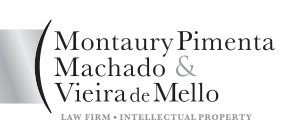In recent years a patent dispute about a spray used in football matches has persisted in Brazil. The spray is used tomark the distance between the defenders and the ball when a free kick is taken. When introduced, it was considered agame changer because it:
- helped players to comply with the distance rule;
- strengthened referees' authority; and
- reduced the time needed to take a free kick after a foul, thus making matches more dynamic.
The spray's inventor is Brazilian. He founded a company to exploit and market the products derived from his patents,which covered the spray's composition in Brazil and in many other countries.
At the end of October 2020, the spray patent expired in Brazil. However, the disputes over the spray continued.
Disputes
There have been two court actions on this matter:
- an infringement action filed by the inventor's company against the International Federation of AssociationFootball (FIFA); and
- a nullity action filed by FIFA to contest the patent's validity.
Filing a nullity action is a common strategy adopted by infringement lawsuit defendants.
A third party in Brazil also requested the administrative nullity of the patent. However, in 2016 the Brazilian PatentOffice (BRPTO) maintained the patent on the grounds that the arguments submitted against it were insufficient toinvalidate the patentability requirements.
Inventor's arguments
Before the Rio de Janeiro State Court, the inventor stated that the Brazilian Football Confederation (CBF) hadapproved his invention in 2002 and that the use of the spray had become mandatory in all football games organised bythe CBF. The spray had also been tested in several football championships throughout Latin America.
The inventor further affirmed that he had tried to negotiate the use and sale of the patent with FIFA, but that thenegotiations had been unsuccessful, despite numerous tests performed in different championships. However, theinventor stated that during the negotiation process, he had learned that a third party had been copying his inventionsince 2009, allegedly with FIFA's endorsement.
FIFA's arguments
FIFA stated that the inventor's allegations were unfounded and that he had attempted to force the sale of the patents.Further, the inventor had failed to technically and commercially develop his product, resulting in the spray havingbeen surpassed by other innovative sprays produced by third parties.
FIFA also stated that patent holders in several other countries had created sprays that were more appealing toconsumers due to various attributes, including:
- a less greasy composition;
- better visibility on the field;
- a faster disappearance; and
- an ecologically friendlier composition.
There was no indication that such products infringed the inventor's patent.
Decision
In June 2020 a first circuit judge rejected the inventor's claims in the infringement action on the grounds that theinventor had not proved that the products used by FIFA corresponded to infringed copies of his products or that anydamage had been caused.
The inventor appealed this decision before the higher courts, but the appeal is still pending examination.
The nullity action is awaiting the conclusion of expert evidence, particularly regarding the product's inventiveness andwhether the patent granted by the BRPTO sufficiently fulfils the disclosure requirement.
Comment
Prior to this dispute the spray had been used in all official matches in Brazil since 2002. However, football fans mayhave observed the effects of the dispute already, as referees were not allowed to use the spray in any official match in2020, including the Brazilian Football Championship matches which started in August 2020.
Considering the extent of the legal dispute, the next football world cup champion is likely to be known long before thewinner of the lawsuit. Football and patent fans should stay tuned to keep track of both battles.:
Further, terms such as 'computer programme', 'software' or 'apps' should be avoided.
Comment
In recent years, the BPTO has taken actions to improve IP protection policies in Brazil. In addition to the new guidelines, actions taken include:
The following are not registrable as marks:
These changes are expected to make Brazil an important destination for companies that seek consumer markets with mature IP protection policies. This would generate a favourable environment for company growth and the maturation of Brazil's competitive environment, which would in turn benefit Brazilians.
For further information on this topic please contact Pablo Torquato or Mônica Gurvitz at Montaury Pimenta,Machado & Vieira de Mello by telephone (+55 21 2524 0510) or email ( This email address is being protected from spambots. You need JavaScript enabled to view it. or This email address is being protected from spambots. You need JavaScript enabled to view it. ). The Montaury Pimenta, Machado & Vieira de Mello website can be accessed at www.montaury.com.br .
Source:





